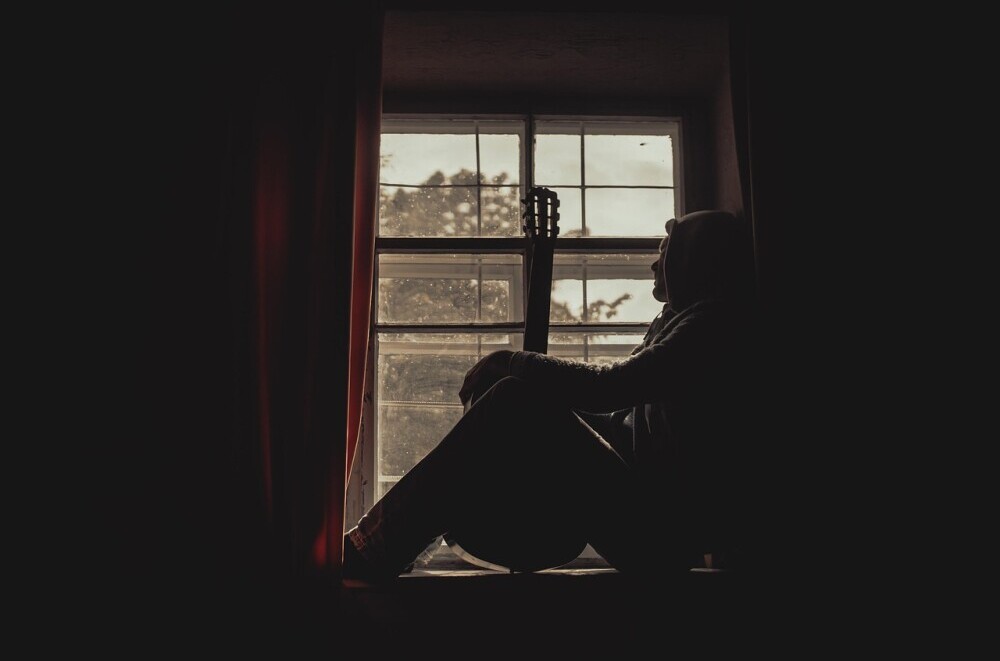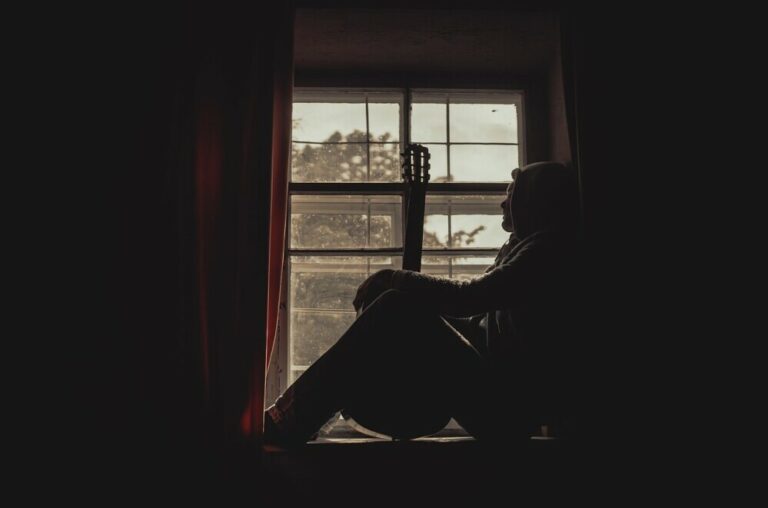
Playing guitar is one of those goals that feels exciting at first. I remember how motivated I was when I picked up my first instrument. Maybe you dream of jamming along to your favorite songs, improvising solos, or even writing your own music. But for a lot of us, progress slows down or even stops. No matter how many tutorials I tried or how long I spent strumming, sometimes it just felt like I was stuck in the same place.
Feeling like your guitar skills aren’t moving forward is super common. The good news? There are three main reasons this usually happens, plus some practical ways to break through that plateau. With a few new habits, you can start spotting progress a lot sooner than you’d think. Instead of feeling discouraged, check out what might be stalling your playing and unlock the path to improvement.
Reason 1: There’s No Structured Practice Routine
When I first started learning guitar, I would just play whatever came to mind. One day I’d try some chords, the next day a riff, and then I’d spend hours just messing around. Sound familiar? Without any structure, improvement happens at random, if at all.
Why Structure Matters
- It helps build all your skills evenly, so you don’t have obvious weak spots.
- You get a sense of direction, so you never wonder “what should I work on now?”
- Seeing progress in one area gives a boost of confidence for the next step.
Core Elements of a Solid Routine
- Warmup: Prepares your fingers and hands, and reduces the risk of injury.
- Chord practice: Essential for rhythm guitar and playing full songs.
- Learning Songs: Keeps things fun and lets you apply new skills.
- Strumming or picking techniques: Builds rhythm and overall sound.
- Scales and arpeggios: Strengthen finger independence and help with soloing.
I’ve built simple routines based on the time I have for practice. For example, a 30-minute session can look like this: five minutes for warmups, ten minutes on chords, five minutes on scales or picking techniques, and ten minutes learning or practicing a song. If I only have 20 minutes, I’ll cut each activity down to fit but keep all parts included. Over time, sticking to this format showed me clear improvement, and it made practice less overwhelming.
How to Create Your Own Routine
- Decide how much time you realistically have each session.
- Break that time into short, focused blocks (5 to 15 minutes per skill).
- Always finish with a song or fun activity so you feel accomplished.
Sticking to this for a few weeks made progress much more visible for me. You don’t need to practice for hours. Even 20 minutes of daily focused and consistent practice beats several hours of unfocused playing. It’s not about the hours you put in, but the quality of your practice.
Reason 2: Not Tracking Your Progress
For a while, I was playing the same exercises over and over without knowing if anything changed. If you don’t track what you practice, it’s really easy to feel like you’re just treading water. You might start feeling frustrated and lose motivation entirely.
Why Tracking Helps
- Makes improvement visible. Even small wins, like switching a chord a little quicker, are easy to spot.
- Keeps you motivated, since you can look back and see how far you’ve come.
- Helps you set clear, realistic goals instead of just guessing what to work on.
Simple Ways to Track Practice
- Use a Practice Journal. I like to jot down which scales, riffs, or songs I worked on, along with anything that felt challenging.
- Record Yourself. Even basic phone recordings can show how you’re improving over time. I do this every few weeks, then listen back to older recordings.
- Set Small Goals. Like “play the D major chord cleanly ten times in a row.” Check off when you hit it.
If writing things down sounds like a chore, even checking off boxes on a simple spreadsheet helps. Find out more about my habit tracker and/ or practice journal here: https://www.skool.com/unleash-your-inner-guitar-hero/about
After a couple of weeks, you’ll start to see patterns, like which exercises lead to breakthroughs or where you keep struggling. This gives you a clear path forward.
What to Track (and Why)
- Time spent on skills. Helps you spot imbalances.
- Difficult sections. Reminds you what needs more focus.
- Personal notes. Quick comments like “sounded better today” or “still buzzing string on F chord.”
Adding just a few notes after your practice can help track patterns in your development. Over time, you’ll have a record that not only shows progress, but also highlights problem areas to address in your next routine.
Reason 3: Practicing in Isolation
I spent a long time trying to improve just by following tutorials or learning songs on my own. Over time, I realized feedback and support can make a huge difference. Sometimes, I didn’t even know the mistakes I was making until someone pointed them out. Playing in a vacuum makes it tough to notice subtle errors or get that extra bit of motivation we all need.
The Power of Community and Feedback
- Other players spot things you can’t hear or see yourself. It’s easy to repeat the same small mistakes over and over; feedback breaks this cycle.
- Learning together keeps you motivated. When I joined a local jam group, I suddenly practiced more often because I wanted to show up ready. Online forums, group lessons, or even having one practice buddy works too.
- Support keeps you moving through tough spots. Hitting a plateau is way less frustrating when you can talk to someone who’s been there and made it through.
Where to Find Support
- Online communities: There are forums and Facebook groups for every style of guitar playing. Don’t be shy about asking questions or sharing progress.
- But here’s the thing, a lot of Facebook groups are quickly dying… instead come join my group here: https://www.skool.com/unleash-your-inner-guitar-hero/about. In there you’ll find people from all over the U.S. and all over the world, yeah it’s small, but it’s growing….
- Group lessons: Whether in person or online, these give you support, feedback, and accountability. You get this for free twice a week here: https://www.skool.com/unleash-your-inner-guitar-hero/about
- Jam sessions: These help you apply theory and technique in a fun, low-pressure way. They’re also a great way to meet other players. coming soon here: https://www.skool.com/unleash-your-inner-guitar-hero/about
If you don’t have easy access to in-person groups, plenty of digital spaces welcome players of all levels. Sharing a short video or even just posting a question can open the door to tips that speed up your progress. Making connections in the guitar community helps you stay motivated and exposes you to different approaches and tips you might not find on your own. That’s exactly what you’ll find here: https://www.skool.com/unleash-your-inner-guitar-hero/about
Bonus Tips: Getting Back on Track Fast
- Start small. I set tiny, daily challenges for myself like “learn one new chord shape” or “play 16 bars without stopping.” These add up quickly.
- Keep practicing fun. Learn easy versions of your favorite songs, or challenge yourself to improvise for five minutes, even if it sounds messy.
- Take breaks if you’re frustrated. Sometimes stepping away for a day or two gives me a burst of new energy when I return.
- Mix in listening to new genres or watching live performances. Seeing what others do on the instrument can spark new ideas for practice and make everything feel fresh.
Guitar Progress FAQ
What if I feel like I have no time to practice?
Even ten focused minutes a day matter and you’ll start to see progress over time. I squeeze in short sessions when life gets busy and try not to worry about missing a day here or there. Some days, I just practice finger exercises or strum patterns even just for a few minutes. It actually helps, to just be consistently picking up the guitar every day.
Is it better to practice every day or a few times a week?
Consistency is super important, but daily practice isn’t the only way. I’ve seen progress from three or four sessions a week, as long as I’m focused when I play. The key is quality over quantity, making sure you’re really present during each session.
What should I do if I hit a plateau?
- Try learning a different style or song.
- Mix up your routine with new exercises.
- Ask someone for feedback or join a group lesson.
- Record yourself playing and listen for habits or mistakes you might have missed.
- Watch new artists or genres online to get ideas for techniques to try.
Action Steps: Unlock Faster Guitar Progress
- Create a short, repeatable practice routine for the week.
- Start tracking your practice sessions and any wins or areas that need work.
- Connect with other players or get feedback to keep momentum going.
- Set at least one small weekly goal and celebrate when you hit it.
I’ve found that steady, simple changes can get you unstuck quickly. Progress might not always be a straight line, but every small improvement adds up over time. If you want to keep growing as a player, focus on these basics and stick with the process. You’ll be surprised how far it can take you. Over time, you might even start helping others in the community—and that’s one of the best ways to really learn and enjoy the guitar adventure.
To finally take your playing to the next level join my community: https://www.skool.com/unleash-your-inner-guitar-hero/about
